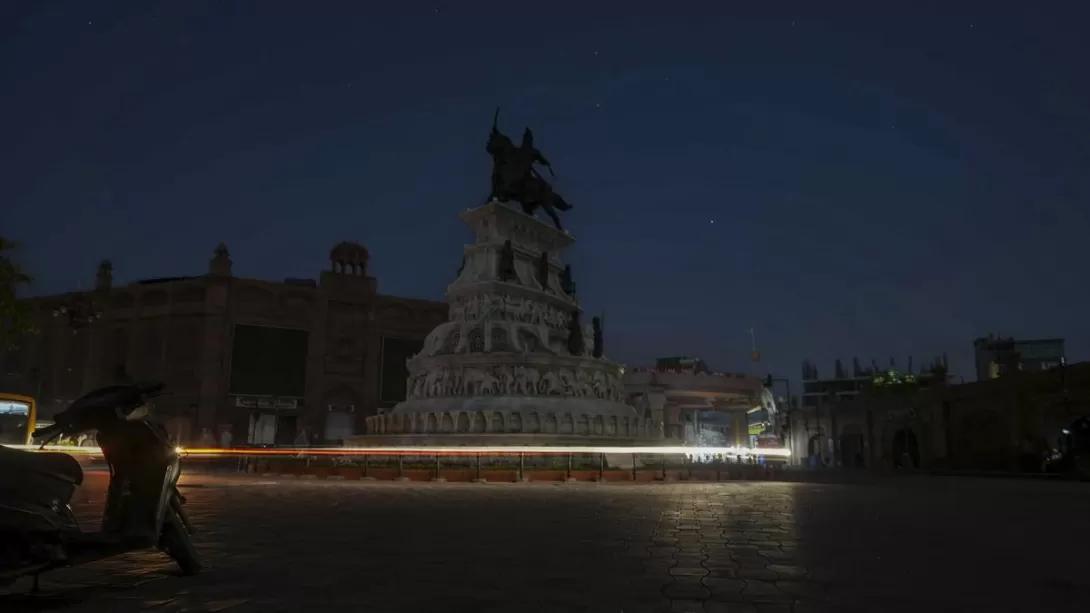A sweeping security response was triggered across Punjab, Haryana, and Chandigarh on Thursday night following a spike in military activity between India and Pakistan. A series of blackouts were enforced in major districts after drones were sighted and explosions reportedly heard near the border. Sirens echoed across towns like Pathankot and Jalandhar, while civil authorities declared restricted airspace and heightened surveillance. With India conducting strikes on terror infrastructure earlier in the week, this surge in hostilities has placed the region on high alert, prompting emergency protocols and leaving border communities on edge.
Border State Blackouts Signal Rising Security Concerns
On the night of May 8, several key districts across northern India—namely Punjab’s Pathankot, Amritsar, Jalandhar, Fazilka, Ludhiana, Rupnagar, Hoshiarpur, Sahibzada Ajit Singh Nagar, and even the Union Territory of Chandigarh—were plunged into darkness. The widespread blackout was not a result of a technical fault, but a deliberate and strategic move by Indian authorities in response to increasing tension with neighboring Pakistan.
The blackout, initiated around 8:30 p.m., was part of a wider civil defense protocol to reduce visibility and exposure to possible aerial threats. Air raid sirens blared across the towns, reinforcing the urgent tone of the situation. Officials urged residents to remain indoors and switch off lights, a measure aimed at minimizing potential civilian casualties in case of enemy strikes.
Drone Sightings and Airspace Restrictions
Security agencies reported spotting multiple drones over Jalandhar around 11:20 p.m., which were swiftly neutralized by Indian forces. These sightings followed a familiar pattern of cross-border drone activity, a tactic that has grown more frequent in recent months as a means of surveillance and infiltration.
In Pathankot, a strategically important border district, residents reported hearing sounds resembling explosions. While these accounts remain unconfirmed by officials, they underscore the tension permeating the region.
The district administration in Sahibzada Ajit Singh Nagar (SAS Nagar), also known as Mohali, declared a blanket no-fly zone for drones and unmanned aerial vehicles (UAVs) effective from May 8 through July 5. The order, enacted under Section 163 of the Bhartiya Nagrik Suraksha Sanhita, 2023, grants emergency powers to enforce airspace restrictions. Exceptions were made only for law enforcement agencies, defense forces, and personnel authorized by the central government.
Civil Defense Measures: Schools Closed, Leaves Cancelled
With security risks escalating, the Punjab government has moved swiftly to protect civilians and preempt further unrest. Schools across border districts have been ordered shut until further notice, and all police personnel have had their leaves canceled to ensure maximum manpower availability.
Deputy Commissioner of Pathankot, Aditya Uppal, addressed the public with clear directives: stay indoors, comply with blackout procedures, and avoid unnecessary movement. While emphasizing that there was no need to panic, his message made it evident that the administration was preparing for potential contingencies in light of the evolving threat environment.
Strategic Context: Aftershocks of Operation Sindoor
The sudden escalation in regional defense readiness comes on the heels of India’s recent military operations against terrorist infrastructure in Pakistan and Pakistan-occupied Kashmir. These preemptive strikes, part of Operation Sindoor, are believed to have triggered retaliatory provocations from across the border.
Thursday night’s events are not isolated—they appear to be part of a larger tit-for-tat pattern that has historically punctuated the Indo-Pak border dynamics. By enforcing civilian defense protocols and increasing military vigilance, Indian authorities are signaling zero tolerance for incursions or hostile acts, regardless of scale.
Broader Implications and Market Watch
Though these developments are primarily defense-oriented, the ripple effects could extend into India's economic and financial spheres. Investor sentiment in sectors such as defense manufacturing, aviation, and energy infrastructure could shift sharply depending on the intensity and duration of the standoff.
In the short term, elevated geopolitical risks often spur safe-haven asset movements and cause volatility in equity markets. Defense companies and cybersecurity firms may experience a temporary boost in valuations, while sectors dependent on regional stability—such as tourism and logistics—may face headwinds.
Conclusion
Thursday’s blackout and drone alerts across Punjab and adjoining territories serve as a stark reminder of the fragile peace between India and Pakistan. With Operation Sindoor intensifying regional anxieties and civilian defense protocols now a reality, the situation demands sustained diplomatic engagement alongside military preparedness. As northern India watches and waits, the next steps taken on both sides of the border will determine whether this flashpoint escalates—or de-escalates—into something much larger.

Comments